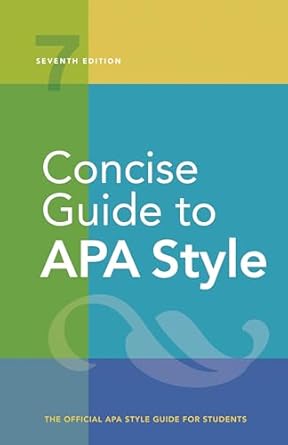[toc]
apa style citation mastering reference examples
Concise Guide to APA Style: 7th Edition (OFFICIAL)
Page 267 Review
APA Style Reference Examples: A Deep Dive
The chapter on reference examples in APA Style is crucial for maintaining academic integrity and facilitating scholarly discourse.
It emphasizes the importance of accurately and consistently citing sources, enabling future researchers to trace the origins of ideas and findings.
This detailed guide is organized meticulously, ensuring ease of navigation and comprehensive coverage.
Textual Works (Sections 10.1-10.7)
This section constitutes a substantial portion of the chapter, focusing on various forms of written material.
It is categorized into several subgroups for clarity:
Periodicals
This category covers publications released at regular intervals, typically journals and magazines.
The manual underscores the need for precise citation details, including:
- Journal Title
- Volume and Issue Numbers
- Page Range
- DOI (Digital Object Identifier), if available
“Appropriately crediting the contributions of past scholars on which your research and writing are based is a hallmark of scholarly discourse.” This highlights the fundamental principle behind proper citation – giving credit where it’s due and acknowledging the intellectual debt to previous work.
Books and Reference Works
This section details how to cite entire books, including textbooks, monographs, and encyclopedias.
Key elements include:
- Author(s) or Editor(s)
- Year of Publication
- Title of the Book
- Publisher
Furthermore, it provides guidance on citing specific editions and translations.
Edited Book Chapters and Reference Work Entries
Often, a researcher will only utilize a specific chapter within an edited book or a single entry from a reference work.
The manual clarifies the necessary information to include in such citations, such as:
- Chapter Author(s)
- Chapter Title
- Editor(s) of the Book
- Book Title
- Page Range of the Chapter
This ensures that the specific contribution within the larger work is appropriately acknowledged.
Reports and Gray Literature
This category addresses documents that are not typically published through traditional commercial channels, such as government reports, research papers, and conference proceedings.
Proper citation is crucial as this information can sometimes be difficult to locate.
The manual emphasizes including:
- Authoring Organization
- Report Title
- Report Number (if applicable)
- Publisher or Source
Dissertations and Theses
These academic works represent substantial research contributions.
The guide specifies how to cite both published and unpublished dissertations and theses, noting the importance of including:
- Author
- Title of the Dissertation or Thesis
- Degree Type
- University Granting the Degree
Reviews of Other Works
When citing a review of a book, film, or other work, specific details are required, including:
- Review Author
- Title of the Review
- Title of the Work Being Reviewed
- Publication Information of the Review
Informally Published Works
This includes blog posts, personal websites, and other materials not formally published.
The citation should include:
- Author
- Title of the Work
- Website Name
- URL
Software and Tests (Sections 10.8-10.9)
This section focuses on how to cite computer software, mobile apps, tests, scales, and inventories. “The software and tests group (Sections 10.8-10.9) contains the categories of computer software and mobile apps and tests, scales, and inventories.
Within those categories are examples by type (e.g., entry in a mobile reference work, test scoring manual).” It’s important to note that citation depends on the specific item.
Audiovisual Media (Sections 10.10-10.12)
This area deals with diverse media types, requiring careful attention to detail. “The audiovisual media group (Sections 10.10-10.12) contains the categories of audiovisual works, audio works, and visual works.
Within those categories are examples by type (e.g., YouTube video, speech audio recording, podcast episode, PowerPoint slides).” Examples include:
- YouTube Videos: Author/Uploader, Title, URL
- Podcast Episodes: Host, Episode Title, Podcast Name
- PowerPoint Slides: Author, Title, Date
The manual provides specific formats for each type of audiovisual content.
The Importance of Consistency
Throughout the chapter, the emphasis remains on consistent and accurate citation. “These contributions must be cited accurately and consistently so that future scholars can identify and retrieve the works cited in the text.” This uniformity allows researchers to easily locate and verify sources, strengthening the credibility of the work.
It is a cornerstone of academic research and a vital skill to master.
In conclusion, the reference examples chapter provides an indispensable guide to proper citation in APA Style.
By adhering to these guidelines, researchers can ensure the integrity of their work and contribute to the broader scholarly community.
Buy full ebook for only $18: https://www.lulu.com/shop/american-psychological-association/concise-guide-to-apa-style-7th-edition-official/ebook/product-rmzpq54.html?page=1&pageSize=4


Leave a Reply